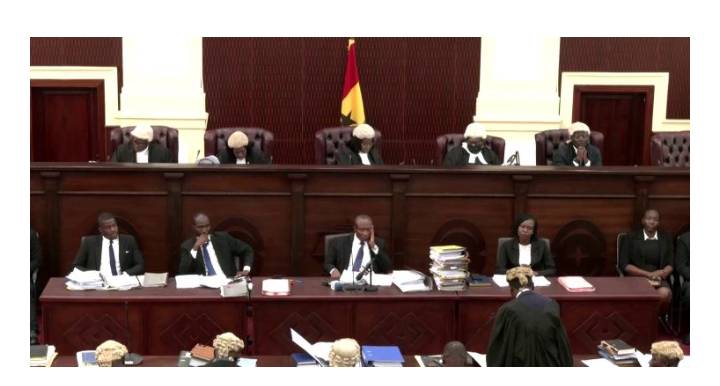The Supreme Court of Ghana is expected to rule today, November 11, on a high-profile case concerning the legitimacy of four vacant parliamentary seats. This case, previously adjourned on October 30, could have substantial implications for constitutional interpretation and parliamentary authority in Ghana.
The controversy began when Speaker of Parliament Alban Bagbin declared four parliamentary seats vacant, affecting MPs who ran as independents in the recent general election. Bagbin argued that these MPs had breached certain parliamentary requirements, justifying the vacancies. The case’s plaintiffs argue that this declaration lacks judicial oversight, claiming it disenfranchises their constituents by removing elected representatives without a court mandate.
The Chief Justice of Ghana, Gertrude Torkornoo, previously instructed Bagbin to submit key documents related to the case by November 6. This order came after Thaddeus Sory, Bagbin’s attorney, requested additional time to review relevant materials and consult with the Speaker on their response to the legal challenge. This submission was expected to clarify the grounds on which Bagbin’s actions were based.
During the October session, Attorney General Godfred Dame argued for the exclusion of Speaker Bagbin from direct involvement in the case, stating that constitutional interpretation falls under the mandate of the Attorney General’s office. Dame asserted that his office is responsible for representing public servants, like the Speaker, in cases that involve the interpretation of constitutional powers. He urged the court to proceed with the case without the Speaker’s active participation, allowing the judiciary to independently interpret the constitutional boundaries around parliamentary vacancies.
This dispute has brought to light significant questions about the checks and balances between Ghana’s judiciary and legislative branches. If the Supreme Court upholds Bagbin’s decision, it could establish a precedent for parliamentary leaders to enforce constitutional requirements autonomously, without direct judicial intervention. Conversely, if the court rules against the Speaker, it would reinforce the judiciary’s authority in adjudicating such cases, emphasizing the need for judicial oversight in matters of constitutional interpretation and the removal of elected officials.
Today’s ruling is expected to have broader implications for Ghana’s democratic process, particularly regarding the limits of parliamentary authority and the independence of each governmental branch. Many political analysts and citizens are closely watching this case, as it could impact future governance and clarify the balance of power within the country’s political framework.
This ruling may either support a more autonomous parliamentary process or affirm the role of the judiciary as the ultimate interpreter of the Constitution, especially in matters involving elected officials’ mandates.
Source: MyjoyOnline.com



No comments yet
Be the first to share your thoughts!